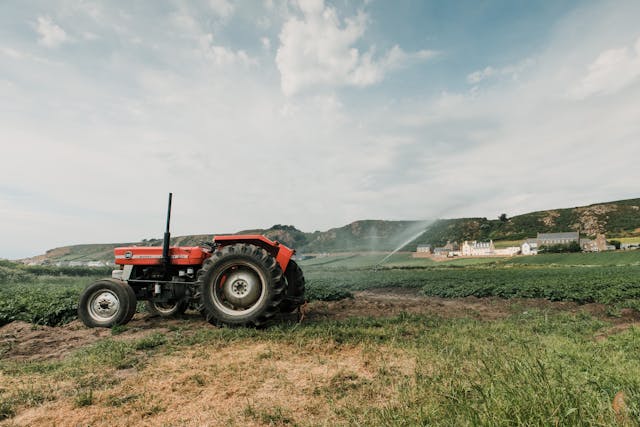
The agricultural sector is mainly determined by the efficiency and the work put in to facilitate the demand of a growing population. To get the best results in cultivation, the preparation of the land should be the first step and, if done correctly, bring out the best results. Human labor has prevailed in yesteryears, making the land cultivation process tedious. However, in recent years, mechanization has helped reduce the workload.
The move for industry players to adopt technology brings many advantages to the agricultural world, including surplus food production. The information in this read will tell you about the importance of mechanization in land preparation. Here are some benefits of adopting the strategy:
Enhanced Efficiency
Farmers can cover larger areas in less time because of the efficiency of automating field preparation activities. Thanks to mechanized equipment like tractors, plows, and cultivators, a fraction of the time is now needed to complete operations that would have taken days or weeks to complete manually. Farmers can optimize their resources and labor for other crucial tasks, which increases total output and saves critical time. The mulching head for a mini excavator would be perfect for lightweight land preparation.
Improved Soil Health
Using mechanical land preparation techniques improves the soil’s structure and health. Torrent Mulchers design their equipment for different uses. Tilling soil, such as mowers, excavators, rototillers, and disc harrows, can help farmers break up compacted soil more successfully, enable aeration, and increase nutrient dispersion than they can with manual approaches. Other applications include enhancing root penetration, water infiltration, and soil tilth to produce the perfect plant growth and development environment.
Accuracy and Uniformity
Mechanization guarantees accuracy and uniformity in preparing the land for planting. With high-tech features like GPS systems and automated depth control found in modern agricultural equipment, farmers can accurately regulate the temperature of the soil before sowing, maintain consistent row spacing, and guarantee that the furrows are aligned. It encourages healthy, balanced crop growth, which raises crop yields and quality.
Cost Savings
The long-term cost savings from mechanized equipment outweigh the initial, seemingly significant, expenditure. Mechanization lessens the need for manual labor, which can be costly and scarce, particularly during busy times of the year. Furthermore, compared to traditional methods, mechanized land preparation techniques require fewer labor, fuel, and maintenance inputs, resulting in cheaper operating costs. In the long run, many financial benefits for farmers come with the introduction of mechanization, like farmers earning better from their produce and getting more produce from their farms. It makes the process cost-effective, and stakeholders can adopt it for better agricultural results.
Ecological Durability
Automated land preparation methods can help promote environmental sustainability if they are utilized with caution. By avoiding soil disturbance and erosion, lowering fuel consumption through efficient equipment use, and using conservation tillage techniques, mechanization can help decrease the adverse environmental effects of agriculture. Furthermore, farmers can reduce chemical runoff and preserve the water quality by using inputs like fertilizers and pesticides more sparingly and utilizing precision farming equipment.
Mechanizing the land preparation process is an essential advancement in modern agriculture that enhances efficiency, environmental friendliness, and productivity, among other things. By optimizing harvests and optimizing processes, farmers can reduce their ecological footprint through the use of modern technologies and mechanized equipment. Mechanizing land preparation is essential to meeting the world’s increasing food demand and preserving agricultural systems’ long-term sustainability.
Over time, better machines will be invented for the remaining jobs in agriculture that still require human labor, but meanwhile, the ones that exist already should be well utilized. With automation playing a significant role in every industry’s success, mechanization is necessary to survive in a competitive environment.






